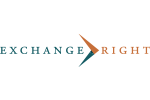Guest Contributor: Why Commercial Real Estate Investors Should Consider Private Debt

By Ryan Gibson, president and chief investment officer, Spartan Investment Group
When investors first hear about participating in debt, they’re often put off by the verbiage. Understandably, debt has negative connotations for many, and investing in it might sound counterintuitive; However, it can be a powerful tool for building wealth, positioning investors to step into the role traditionally played by banks.
Investing in debt – also known as private credit or private notes – is becoming an increasingly popular option among those seeking alternative investments. According to BlackRock, the global private credit market accounts for more than $1.3 trillion in assets under management, representing approximately 12% of the global alternative investments market.
Debt can be a source of stable, predictable income, allowing investors to avoid much of the volatility that comes with equity investments. As such, it can be an excellent way to diversify and balance a portfolio.
The Pros and Cons of Private Debt
In equity investments, investors purchase a portion of ownership interest in a property or deal. In return, they share in the property’s income and upside. In contrast, debt investors lend capital to the developer or property owner. They won’t participate in the property’s upside but will receive regular loan payments.
While the returns may be lower if a deal goes well, debt investors are typically protected even if a deal loses value. This is a key advantage of private credit. Debt investors are senior to equity investors in the capital stack, meaning their principal will be returned first.
Debt investors often benefit from a shorter hold period, too. Equity investments usually operate on a five- or more-year horizon, with no guarantee of a set end date. On the other hand, debt investors lend their capital for a defined period, which can be as short as six months.
Since debt investments offer a fixed return, debt investors also have the advantage of consistent monthly payments, without unpredictable cash flow that equity investors take on.
The Mechanics of Debt
There are numerous ways to invest in debt, providing investors with various options depending on their profile and preferences. One of the most common is to purchase treasury bonds. These are considered among the safest debt investments on the market because they are backed by the federal government.
Commercial real estate investors have several avenues available to them, too. Seasoned investors who have a deep understanding of the real estate market may choose to lend capital directly to an operator or house flipper. This strategy requires significant knowledge to vet the deal and assess the potential risks and returns.
Alternatively, investors may opt to participate in a debt fund. Debt funds aggregate capital to lend money to multiple projects. In some cases, companies initiate debt funds to support their own ventures. In others, debt funds may lend to a range of outside operators and property owners. While investors should always perform due diligence, funds require less expertise on the lender’s part since they will be overseen by a fund manager with experience in underwriting and managing loans.
Understanding a Debt Deal
Debt typically entails less risk than an equity investment. That said, it is vital that investors take steps to protect themselves and their capital. When individuals invest in private credit, they’ll receive a promissory note. This is a contract between the lender and the borrower that spells out the terms of the loan.
Because debt investments can vary significantly in structure, it is important that investors understand the specific terms and conditions outlined in this document. Among other provisions, the promissory note will detail the length of the loan and the level of interest paid, along with penalties for late or non-payment.
One crucial metric that investors frequently overlook is the leverage cap, which specifies the maximum amount of debt the borrower can take on to finance the project. If a deal is over-leveraged, it introduces considerable risk for the lender. Should the real estate decrease in value, this could impact the lender’s ability to recoup their principal. As such, lenders must ensure the borrower maintains a manageable level of debt relative to the property’s value. When in doubt, a real estate attorney can be an invaluable partner in vetting the contract.
Aligning the Offering to the Investor
For investors interested in participating in commercial real estate, debt investing can be an effective way to realize steady returns over a fixed period of time. But as with any offering, research and due diligence are imperative.
Those who wish to begin investing in debt should first consider their risk threshold. Individuals with expertise in real estate may be drawn to riskier projects and direct lending opportunities. Investors who prefer a hands-off approach may find that debt funds or deals offered by experienced operators better serve their needs. Regardless of the model they opt for, investors should conduct thorough due diligence on the offering and ensure the borrower has a strong track record working in commercial real estate.
Private debt offers a compelling combination of risk mitigation and income opportunity for individuals seeking alternative investments — particularly those who favor a lower-risk environment. However, to harness this potential, investors must carefully evaluate each opportunity. For an investment to deliver, the deal must align with an investor’s financial goals, their risk tolerance, and, above all, their values.
Ryan Gibson is president and chief investment officer of Colorado-based Spartan Investment Group, a privately held real estate investment firm specializing in the self-storage industry. To connect with Ryan directly, email ryan@spartan-investors.com.
The views and opinions expressed in the preceding article are those of the author and do not necessarily reflect the views of The DI Wire.


